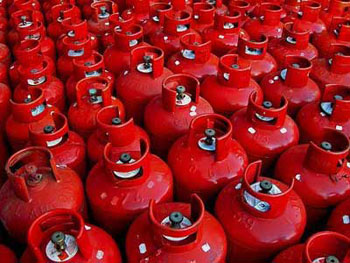The Differences Between Butane and Propane
When buying bottled fuel for outdoor stoves and mobile heating, it can be difficult to choose between the many types and brands on the market today. As with any consumer decision, people’s strategies differ widely when faced with the overwhelming number of purchasing options that are available at both physical and online stores. Some customers go for the cheapest option while others buy whatever their friends recommend. Although it’s important to be able to trust your friend’s opinion, why not turn to the fuel experts so that you can make the most informed consumer decision possible? Here are the differences between butane and propane, and a few tips on whether one or the other is best for you.
What is Butane?
Butane, or C4H10, is an alkane natural gas derivative which can be found as two different structural isomers, n-butane or isobutane, or a blend of the two. N-butane, such as Puretane butane, is highly refined and is the type of butane that we normally think about when we hear the term. A natural gas liquid, n-butane is a highly flammable hydrocarbon that is used in such diverse products as torches, cigarette lighters, Tiki torches, and portable camping stoves. Isobutane is a methylpropane that is less refined than n-butane. It is used as a refrigerant in domestic refrigerators and freezers and as a propellant in aerosol sprays such as cooking sprays and hairspray.
Like all natural gas, butane is a colorless and odorless hydrocarbon in its natural form. It burns when exposed to oxygen and releases carbon dioxide (chemical formula CO2) and water vapor (chemical formula H2O). N-butane boils at 31 degrees Fahrenheit, though the flames of butane torches can reach up to 2,600 degrees Fahrenheit.
How is Butane Made?
Butane is a component of natural gas that is extracted during the refinement process of petroleum products. It can be derived from the fractional distillation of crude oil, which also produces such components as petrol, diesel oil, and kerosene, although butane is extracted only in much smaller quantities from crude oil.
What is Propane?
A similar alkane, propane or C3H8, is also used as a portable energy source. Like butane, it is a liquefied gas by-product of natural gas processing and petroleum refining. It is used to power trains, buses, and taxis, for small engines such as lawn mowers, and as a primary home heating fuel. Today, over 15 billion gallons of propane are used annually in the United States.
Is Butane or Propane a Better Fit For You: The Pros and Cons
 The first fact consumers need to know about butane is this: Often when we talk about butane and propane that is sold commercially, the actual product is in fact a mixture of the two. LPG, or liquefied petroleum gas, is a common mixture of the two substances. Even mixtures that are labeled as one or the other are often blends with 90% propane and 10% butane and other derivatives, or the other way around. This is why we stress that you read labels carefully so that you know exactly which substance you’re getting and in what quantities.
The first fact consumers need to know about butane is this: Often when we talk about butane and propane that is sold commercially, the actual product is in fact a mixture of the two. LPG, or liquefied petroleum gas, is a common mixture of the two substances. Even mixtures that are labeled as one or the other are often blends with 90% propane and 10% butane and other derivatives, or the other way around. This is why we stress that you read labels carefully so that you know exactly which substance you’re getting and in what quantities.
All devices that use either propane or butane canisters will also be able to use the other one. So how do you choose which kind to get? Here are a few factors to consider before buying your next gas refill.
- Price – Butane is less expensive than propane and a bottle filled with butane often contains a higher volume than a bottle of propane.
- Energy Efficiency – Butane provides about 12% more energy than propane when the same volumes are burned above freezing. This means that you won’t have to buy as many butane refills as you would propane, making it ideal for bringing along on camping trips when you need all of the backpack space you can get.
- Usability – The main difference between butane and propane is that butane doesn’t work well in low temperatures. When in temperatures lower than freezing, the gas will stay in its liquid form and there will not be enough pressure to release it and produce a flame.
- Availability – Propane is more widely available than butane, and may be a more convenient choice unless you order ahead or stock up on butane.
Many consumers choose to switch between the two gases, using propane in the winter and butane in the summer. The important thing to remember is that butane and propane require different settings in order to burn. You often have to change valves and fittings before you can switch which fuel you use. Ask the experts at Butane Source for more information about the many applications of butane and propane, and stock up on butane canisters, cases, and master cases from major brands such as Newport and Lucienne.
